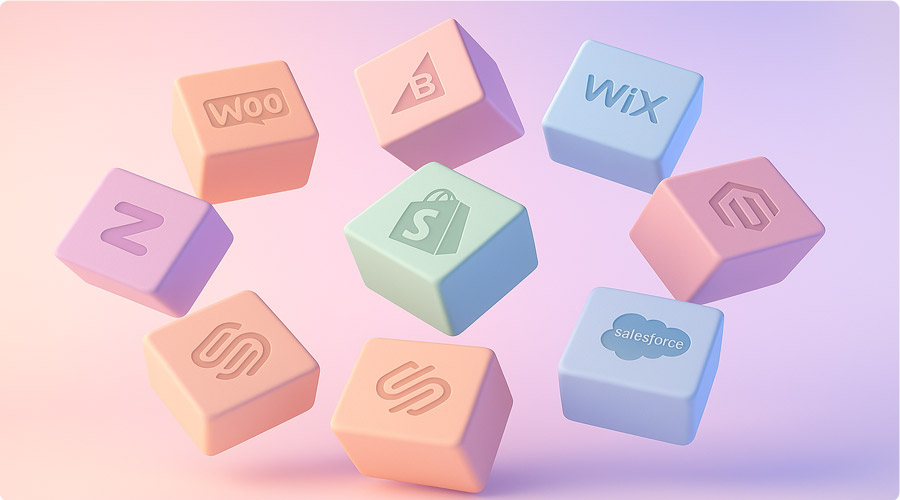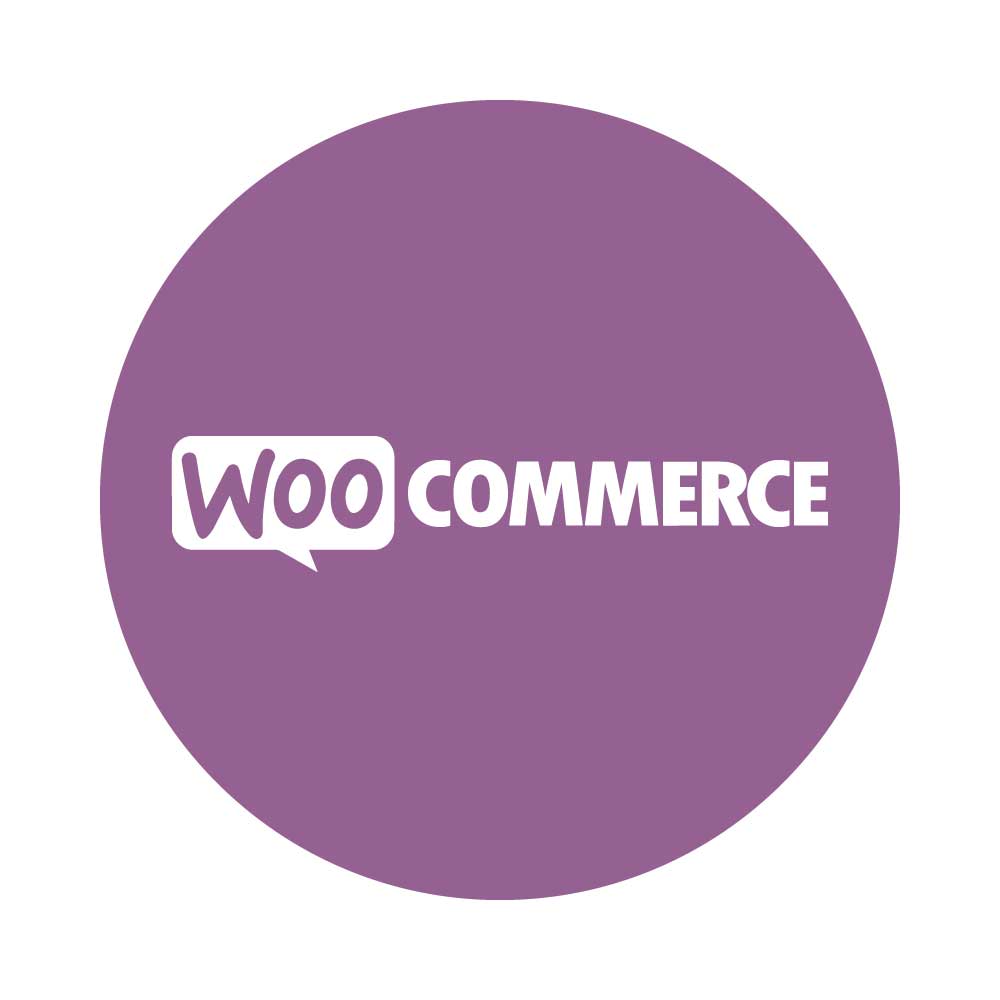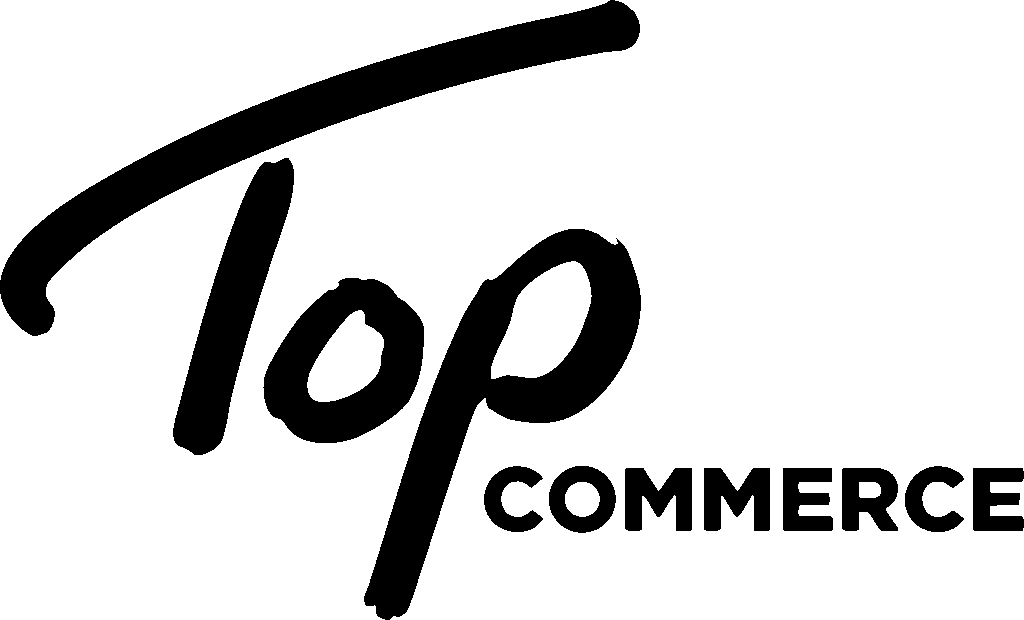Shopify powers over 4.8 million online stores worldwide: The most trusted eCommerce platform for startups.
Best eCommerce Platforms for Startups: Top 10 Picks for Every Business

Finding the best eCommerce platforms for startups is one of the earliest and most important steps. The right choice can help stretch limited budgets, save precious time, and provide tools that are both scalable and easy to use. That’s why so many founders search for platforms that fit their product type and growth goals. A solution that works beautifully for a fashion brand may not be ideal for digital goods, eco-friendly products, or subscription-based businesses.
This guide reviews 18 leading platforms, highlights what makes each unique, and explains which business types they serve best, from fashion and digital goods to eco-friendly products and more. By the end, startups will have a clear view of the tools that can power growth in 2025 and beyond.
What to Consider When Selecting the Best eCommerce Platforms for Startups

- Ease of Use & Setup
The best eCommerce platforms for startups should offer simple setup, user-friendly dashboards, and minimal technical knowledge requirements. - Affordability and Transparent Pricing
When asking what is the best eCommerce platform for small business, consider affordable plans, transparent fees, and cost-effective scaling. - Scalability (Start Small, Grow Big)
Startups need platforms that support small beginnings but scale seamlessly with traffic, products, and advanced features as businesses expand. - Niche Support (Digital Downloads, Eco-Friendly, Fashion, etc.)
What is the best eCommerce platform for startups depends on niche support—digital products, eco-friendly stores, or fashion-focused features. - Marketing & SEO Features
The best eCommerce platforms for startups include built-in SEO, marketing tools, and analytics to help small businesses attract customers. - Integrations with Payments, Shipping, Apps
The right eCommerce platform integrates easily with payment processors, shipping providers, and third-party apps to simplify small business operations. - Customer Support & Community
Startups thrive when platforms provide reliable customer support, helpful tutorials, and active communities to guide small businesses through challenges.
Mainstream & All-in-One Platforms

 Shopify
Shopify
Shopify is the most popular all-in-one eCommerce platform, offering robust tools, thousands of apps, and built-in scalability. It makes launching, managing, and growing an online store seamless.
Best for: Startups scaling quickly across multiple products and markets.
Pricing: From $1/month.
 WooCommerce
WooCommerce
WooCommerce is a flexible WordPress plugin that transforms any WordPress site into a fully functional online store. It’s open-source, customizable, and supported by a vast community.
Best for: Content-heavy startups already built on WordPress CMS.
Pricing: Free core plugin; hosting and premium extensions vary.
 BigCommerce
BigCommerce
BigCommerce delivers enterprise-grade features like multi-channel sales, advanced SEO, and strong B2B tools without needing plugins. It’s designed to handle rapid growth with ease.
Best for: Fast-growing SMBs and startups with B2B needs.
Pricing: From $29/month.
 Wix eCommerce
Wix eCommerce
Wix offers an intuitive drag-and-drop builder with customizable templates and integrated apps. It’s beginner-friendly yet powerful enough to support small business growth.
Best for: Beginners seeking easy setup and quick store launch.
Pricing: From $27/month.
 Squarespace Commerce
Squarespace Commerce
Squarespace combines sleek, design-focused templates with integrated commerce tools. Perfect for visually-driven brands wanting a store that reflects strong branding and storytelling.
Best for: Creative brands such as artists, designers, and lifestyle businesses.
Pricing: From $12/month.
 Square Online
Square Online
Square Online syncs seamlessly with Square POS, enabling retailers to unify in-store and online sales. It’s a simple way for brick-and-mortar stores to expand online.
Best for: Physical stores moving into eCommerce with minimal hassle.
Pricing: Free plan available; paid plans start at $29/month.
Over 20% of startups fail in first year because they choose the wrong tools, choose visely!

Over 20% of startups fail in first year because they choose the wrong tools, choose visely!
Enterprise/Advanced Options for Ambitious Startups

 Magento (Adobe Commerce)
Magento (Adobe Commerce)
Magento, now Adobe Commerce, is a highly customizable platform built for enterprises. It offers advanced features, flexibility, and complete scalability for global operations.
Best for: Startups aiming to scale into complex, enterprise-level businesses.
Pricing: Open-source free; Adobe Commerce plans are custom-priced.
 Salesforce Commerce Cloud
Salesforce Commerce Cloud
Salesforce Commerce Cloud provides enterprise-grade solutions with AI-driven personalization, omnichannel capabilities, and deep CRM integrations for data-powered growth.
Best for: Large startups needing AI personalization and enterprise scalability.
Pricing: Custom enterprise pricing, based on sales volume.
OpenCart
OpenCart is an open-source platform supported by an active community. It provides flexibility, strong extensions, and a cost-effective way to build tailored eCommerce stores.
Best for: Startups seeking open-source freedom with community-driven support.
Pricing: Free core; paid extensions and hosting required.
 PrestaShop
PrestaShop
PrestaShop is a popular open-source solution, especially strong in Europe. It offers multilingual, multi-currency support and flexibility through modules and themes.
Best for: European startups or businesses needing flexible, international features.
Pricing: Free core; costs depend on hosting and add-ons.
Niche / Specialized Platforms

 Gumroad
Gumroad
Gumroad makes it easy for creators to sell digital products, courses, and memberships without technical hurdles. Simple and creator-first.
Best for: Artists, writers, and creators selling digital goods or subscriptions.
Pricing: Free to start; 10% fee per sale.
 Sellfy
Sellfy
Sellfy focuses on digital goods and creator-friendly tools. It allows selling downloads, subscriptions, and physical items in simple, branded storefronts.
Best for: Small businesses and creators seeking easy digital product sales.
Pricing: From $19/month.
 Ecwid
Ecwid
Ecwid is a plug-in eCommerce tool that integrates with existing websites or social media, adding store functionality seamlessly.
Best for: Small businesses adding eCommerce to blogs or sites.
Pricing: Free plan available; paid from $19/month.
Shift4Shop
Shift4Shop offers a small business-friendly platform with built-in SEO, marketing tools, and no additional transaction fees.
Best for: Small businesses seeking affordable growth with SEO focus.
Pricing: Free for U.S. merchants processing with Shift4; others from $29/month.
 Volusion
Volusion
Volusion is one of the long-standing top 10 eCommerce platforms, offering inventory, analytics, and SEO tools for SMBs.
Best for: Small to mid-sized businesses needing reliable all-in-one features.
Pricing: From $35/month.
 Hostinger Builder
Hostinger Builder
It’s simple, fast, and ideal for building modern storefronts quickly.
Best for: Startups on tight budgets wanting AI-assisted site building.
Pricing: From $11.99/month.
Weebly (by Square)
Weebly offers beginner-friendly drag-and-drop functionality, with easy integration into Square’s ecosystem for payments and POS.
Best for: Small businesses and first-time eCommerce owners.
Pricing: Free plan available; paid from $13/month.
Verishop / Eco-Friendly Platforms
Sustainable-focused platforms like GreenCommerce or eco-friendly Shopify apps support brands prioritizing ethical sourcing and environmentally conscious operations.
Best for: Eco-friendly startups and businesses highlighting sustainability.
Pricing: Varies by platform or app chosen.
Best e-commerce Platforms for Small Businesses
Not all small businesses are startups! When it comes to the eCommerce platforms for small business, the right choice depends on goals, budget, and growth stage. Shopify remains a favorite thanks to its scalability, multi-channel sales, and app ecosystem, while BigCommerce stands out for SEO and B2B features that appeal to growing retailers.
Squarespace and Wix offer sleek design templates with user-friendly tools, perfect for lifestyle and creative brands, whereas Square Online and Weebly integrate seamlessly with POS systems, making them ideal for local shops, restaurants, and service providers.
WooCommerce gives content-heavy or blog-driven businesses the flexibility of WordPress, while platforms like Shift4Shop and Volusion provide classic small business features with a focus on SEO, inventory, and affordability. For the most budget-conscious, Zyro delivers an AI-powered, low-cost builder that keeps things simple without sacrificing design.
What is the best ecommerce platform for startups by category?
Product Category | Recommended Platforms | Key Strengths |
Fashion & Lifestyle Brands | Shopify, BigCommerce, Squarespace | Strong visuals, inventory management, multi-channel (IG/TikTok). |
Digital Products & Creators | Gumroad, Sellfy, WooCommerce | Easy delivery of files, subscriptions, and memberships. |
Eco-Friendly & Sustainable | Shopify (eco apps), GreenCommerce, Squarespace | Showcase sustainability, supply chain transparency, branding. |
Local Retail & Food | Square Online, Wix, Weebly | POS integration, local pickup, and delivery support. |
B2B & Wholesale Startups | BigCommerce, Magento, PrestaShop | Bulk ordering, custom catalogs, advanced integrations. |
Comparing Costs & Value for Startups

- Low-Budget Options (WooCommerce, Zyro, Weebly)
For founders with lean budgets, WooCommerce, Zyro, and Weebly offer affordable entry points without sacrificing essential features. These platforms provide basic tools, hosting, and integrations that help get a store online quickly. They’re often considered among the best eCommerce platforms for small businesses starting out with limited resources and a need to control costs.
- Mid-Range Scalable (Shopify, Wix, Squarespace)
Shopify, Wix, and Squarespace provide mid-tier pricing with far more scalability. Startups benefit from polished design, marketing integrations, and easy inventory management. These platforms strike the balance between affordability and growth, making them contenders for the best eCommerce platform for startups looking to expand steadily while maintaining strong branding and customer experience.
- Advanced Enterprise (Magento, Salesforce)
For ambitious startups preparing to scale globally, enterprise-grade platforms like Magento (Adobe Commerce) and Salesforce Commerce Cloud deliver powerful customization and AI-driven tools. While they require bigger budgets, they unlock advanced features for complex catalogs, multi-market operations, and omnichannel growth. These options suit startups that have surpassed entry-level solutions and are investing heavily in future scalability.

Shopify powers over 4.8 million online stores worldwide: The most trusted eCommerce platform for startups.
How to Build Your First Store Without Overwhelm
- Start with core products → Focus on your main items instead of listing everything.
- Choose a simple design → Clean, minimal templates make stores easier to navigate
- Prioritize checkout & payments → Smooth transactions prevent cart abandonment.
- Use free trials before committing → Test different platforms risk-free to find the best fit.
Final Thoughts
There’s no single “best” eCommerce platform for every small business or startup, the right choice depends on products, budget, and growth goals. Affordability matters in the early stages, but scalability becomes essential as sales increase. That’s why experimenting with free trials is so valuable: it lets founders explore features, test user experiences, and choose the platform that truly aligns with their long-term vision.

